Brisbane Property Management in 2024: The Ultimate Guide
Introduction to Property Management in Brisbane
In 2024, navigating the Brisbane property management landscape demands more than just a passive approach; it calls for a strategy that maximises both tenant satisfaction and investment profitability. With Brisbane's market dynamics and legalities continuously evolving, property owners and investors are seeking guidance on how to maintain a competitive edge. This guide offers an in-depth exploration of effective property management practices, focusing on relationship management, legal compliance, financial acumen, and the art of choosing the right tenant—crucial components for anyone looking to not just survive but thrive in the Brisbane property scene.
Table of Contents
-
List Item 2
The Essential Role of a Property Manager
-
List Item 3
Selecting the Right Tenant: Beyond Financial Checks
-
List Item 4
Maintenance: Increase Property Value and Tenant Satisfaction
-
Financial Management: Maximising Investment Returns
-
Navigating Legal Compliance in Queensland's Rental Market
-
The Local Advantage: Insights into Brisbane's Property Market

The Essential Role of a Property Manager
Effective property management is essential for maintaining a healthy balance between tenant satisfaction and investment profitability. It involves a combination of good communication, legal expertise, financial acumen, and an in-depth understanding of the housing market. A dedicated property management service, such as CAPEX Property's executive rental service, provides personalized service that aligns with these needs, ensuring that your investment is not just maintained but thrives.
At the core, property management is about relationship management. It’s about creating a seamless experience for tenants while ensuring the property owners’ peace of mind and profitability of their investment. This is where CAPEX Property shines. Our ethos is built around understanding that each property, owner, and tenant is unique, and therefore, a one-size-fits-all approach to property management falls short of delivering excellence.
But what really sets a property manager apart? It’s the ability to anticipate issues before they become problems. Proactive maintenance and regular inspections are part of the routine, ensuring properties are always at their best, and small issues are fixed swiftly to avoid more significant complications down the line. Moreover, with Queensland's rental laws constantly evolving, having a property manager who stays abreast of these changes and ensures your property complies is invaluable. This not only protects you from potential legal pitfalls but also ensures your tenants have a safe and compliant home.
Financial acumen is another critical component of effective property management. It's not just about ensuring rent is paid on time but also about optimising rental yields, budgeting for maintenance and renovations, and providing owners with transparent financial reporting. CAPEX Property excels in this area, offering landlords strategic advice on financial planning and growth, ensuring their investment's profitability.
Selecting the Right Tenant: Beyond Financial Checks
Selecting the right tenant goes beyond just checking financial credentials and rental history. It’s about finding someone who will respect your property and contribute positively to its upkeep and the community around it. This means looking into their past interactions with landlords, their reasons for moving, and their expectations from their new home.
It’s a crucial step that can significantly impact your investment's profitability and longevity, emphasizing the importance of a thorough and considerate screening process. This approach not only ensures a steady income but also helps in maintaining and enhancing the property's value over time.
Premier property management in Brisbane.
We uphold your investment property standards with regular inspections, maintenance, tenant and finance management.
Maintenance: Increase Property Value and Tenant Satisfaction
A well-maintained property is more than just a responsibility—it's a critical strategy for enhancing tenant satisfaction and sustaining property value. This proactive approach ensures that both minor and major issues are addressed promptly, preventing them from escalating into more significant problems that could adversely affect your investment.
Routine Inspections: A Preventive Measure
Regular, scheduled inspections are a cornerstone of effective maintenance. These not only help in identifying potential issues before they become serious but also signal to tenants that you're invested in their comfort and the property's upkeep. For instance, twice-annual inspections can uncover hidden problems like small leaks or pest infestations, which if left unchecked, could lead to costly repairs.
Responsive Maintenance Requests: Building Trust with Tenants
Timeliness in addressing maintenance requests builds trust and satisfaction among tenants. This responsiveness ensures that tenants feel valued and taken care of, which can be a decisive factor in their decision to renew leases. Consider a scenario where a AC system fails during a hot summer. A landlord's quick action to repair the issue not only resolves the immediate discomfort but also reinforces the tenant's loyalty to the property.
Investing in Upgrades: Enhancing Efficiency and Appeal
Strategic upgrades play a vital role in maintenance. Updating old appliances with more energy-efficient models or refreshing the paint can significantly improve a property's appeal and functionality, making it more attractive to prospective and current tenants. Moreover, energy-efficient upgrades can reduce utility costs, a selling point for environmentally conscious tenants.
Landscaping and Curb Appeal: The First Impression
The property's exterior is the first thing prospective tenants see. Regular landscaping, from lawn mowing to trimming hedges, boosts curb appeal and can make a significant difference in attracting tenants. A well-kept garden or a freshly painted facade not only enhances the property’s visual appeal but also contributes to the neighborhood's overall aesthetics, potentially increasing the property's market value.
Preventive Measures: Saving Costs in the Long Run
Investing in preventive maintenance, such as regular plumbing checks and roof inspections, can avert disasters. For example, replacing worn-out roof tiles before the rainy season can prevent water damage, saving on more extensive repairs later. These actions not only protect the property but also demonstrate a commitment to quality and safety to current and prospective tenants.
Financial Management: Maximising Investment Returns
Effective financial management is a pivotal aspect of property management that goes well beyond simply collecting rent. It involves a comprehensive approach to budgeting, expense management, and financial planning to ensure the property not only remains profitable but also sees growth in its investment value over time.
Setting Competitive Rental Rates
The foundation of sound financial navigation is setting the right rental price. It’s a delicate balance between maximizing your income and ensuring your property is attractive to potential tenants. Market research and understanding the local Brisbane rental landscape are crucial here. Prices too high might lead to extended vacancies, while too low could diminish your returns. Periodic reviews of rental prices, considering current market trends and the property’s enhancements, ensure your investment remains competitive.
Budgeting for Upkeep and Improvements
Allocating funds for regular maintenance and potential improvements is essential. A well-planned budget covers routine upkeep costs and sets aside reserves for larger projects, like kitchen renovations or energy-efficient window installations, that can significantly increase the property's appeal and value. This foresight in budgeting not only maintains the property's condition but can also elevate its market standing, leading to higher rental yields.
Streamlining Expenses
Effective property management also involves optimizing operational costs. This can include negotiating better rates for services like landscaping or insurance, investing in energy-efficient fixtures to reduce utility costs, or implementing systems to streamline rent collection and reduce administrative burdens. Every dollar saved through efficient expense management directly enhances the investment's profitability.
Financial Reporting and Analysis
Comprehensive financial reporting provides a clear picture of the property's financial health. Regular reports should include income statements, expense reports, and cash flow analysis. This transparency allows for informed decision-making, whether it's adjusting rental rates, planning for future investments, or identifying areas where costs can be optimized.
Tax Planning and Legal Compliance
Understanding the tax implications of property investment and ensuring compliance with relevant laws and regulations is fundamental. This includes maximizing allowable deductions, such as maintenance expenses, property management fees, and depreciation, to optimize tax benefits while adhering to legal requirements.
In essence, adept financial management in property management is multifaceted, combining strategic planning with operational efficiency to enhance the investment's profitability. It requires a keen understanding of the market, judicious budgeting, and a proactive approach to expense management and financial analysis. By navigating these financial waters skillfully, landlords can ensure their Brisbane property not only sustains its value but grows as a lucrative investment over time.
Navigating Legal Compliance in Queensland's Rental Market
Ensuring your rental property complies with Queensland's rental laws is crucial. These laws are designed to protect both landlords and tenants, outlining rights and responsibilities on both sides. Staying informed about legislative changes and understanding how they impact your property management practices is essential for legal compliance and the smooth operation of your rental.
- Understanding the Legislation: Queensland's rental laws cover a wide range of aspects, from lease agreements and bond handling to tenants' and landlords' rights during the tenancy. Keeping abreast of these laws requires regular review and, often, consultation with legal experts in property management.
- Lease Agreements: Crafting clear, comprehensive lease agreements that align with QLD rental laws is fundamental. These agreements should detail everything from rent payments and property maintenance responsibilities to conditions for lease termination, ensuring both parties are aware of their obligations.
- Property Safety and Standards: The law requires rental properties to meet specific safety standards, including smoke alarms, electrical safety, and structural integrity. Regular property inspections and maintenance are vital to comply with these standards, protecting your tenants and your investment.
- Dispute Resolution: Understanding the legal processes for resolving disputes between landlords and tenants is another critical aspect of compliance. Whether it's dealing with unpaid rent, property damage, or other issues, knowing the legal steps to take helps in resolving these matters effectively while adhering to the law.
- Privacy and Access: QLD rental laws also regulate a landlord's access to the property, ensuring tenants' privacy is respected. Being familiar with these regulations—when and how you can enter the property—is essential for maintaining a good relationship with your tenants and staying legally compliant.
Navigating the legal landscape of property management in QLD can be complex, but it's an unavoidable aspect of being a landlord. Staying compliant not only protects you from potential legal issues but also contributes to a fair, respectful, and positive leasing experience for your tenants. Regular updates and possibly consulting with property management professionals can help ensure you remain on the right side of the law.
The Local Advantage: Insights into Brisbane's Property Market
Understanding Brisbane's property market offers a significant advantage for property investors. Knowledge of neighbourhoods trends, property values, and rental demand is crucial for making informed decisions about rental pricing, renovations, and timing for sales. Partnering with a property management firm like CAPEX Property, which has deep insights into the local market, can optimize investments according to current trends and legislative changes specific to Brisbane and Queensland, ensuring investors make the most informed decisions for their properties.
it's clear that success hinges on more than just ownership—it's about partnership. This is where CAPEX Property excels. With our comprehensive understanding of the local market, dedication to personalised service, and commitment to maximising your investment's potential, CAPEX Property is the secret weapon every property investor needs. Whether you're navigating legal complexities, optimizing financial performance, or ensuring tenant satisfaction, our expert team is ready to guide you. Speak to us today to learn more about our services and take the first step toward elevating your property investment strategy.
Share this with friends!
Latest Property Market Insights











